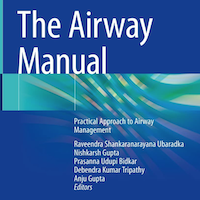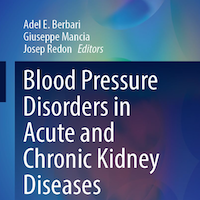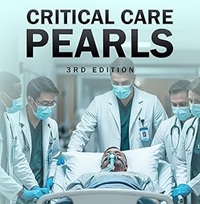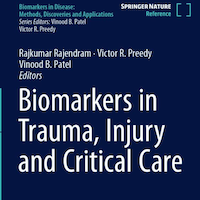Tag: delirium
The Dangerous Duo: How Delirium Compounds Risks in Acute Kidney Injury
This systematic review and meta-analysis of over 158,000 critically ill patients reveals a significant link between Acute Kidney Injury (AKI) and delirium, affecting approximately 32% of patients with AKI. The study found... read more
4D Trial Unlocks Calm: Dexmedetomidine Eases Hyperactive Delirium in Non-Intubated ICU Patients
The 4D randomized clinical trial, a multicenter, double-blind, placebo-controlled study conducted across nine ICUs, investigated the effectiveness of continuous intravenous dexmedetomidine infusion versus placebo in non-intubated... read more
DeLLiriuM: LLMs Predict Delirium Risk in the ICU
DeLLiriuM is a novel large language model (LLM) designed to predict delirium in Intensive Care Unit (ICU) patients after the initial 24 hours of admission, using structured electronic health records (EHR). What sets DeLLiriuM... read more
Melatonin for Delirium Prevention: The Sleep Hormone Doesn’t Pass the ICU Test
Despite its frequent occurrence and association with increased mortality in critically ill patients, delirium prevention remains challenging. A recent meta-analysis sought to resolve conflicting results from randomized controlled... read more
Delirium vs. Encephalopathy: Unifying the Approach to Brain Dysfunction
Current clinical practice and research are limited by the separate, or dichotomized, use of the terms "encephalopathy" and "delirium." This separation hinders a unified approach to understanding acute brain dysfunction. Encephalopathy... read more
Reduce Delirium in Critically Ill Patients Using Depth of Sedation Monitors
Delirium impacts up to 80% of patients in the intensive care unit (ICU). Current clinical sedation scales depend on subjective measurements, which are unreliable. We hypothesize processed EEG (pEEG) may be effective at monitoring... read more
Finding the Ultimate Sedative
Critically ill patients requiring invasive mechanical ventilation often need continuous sedation for pain and anxiety. Propofol, a GABA potentiator, and Dexmedetomidine, an α2-adrenergic receptor agonist, are commonly used... read more
Thirst Management in Orotracheally Intubated and Mechanically Ventilated Patients
Symptom Management Theory (SMT)-based thirst management is an effective strategy. The 5 mL cold water spray method significantly reduces thirst intensity and distress in mechanically ventilated patients under fasting and... read more
Anesthesia Role in Sedation and Weaning From Mechanical Ventilation
This systematic review highlights the advantages of anesthetic sedation strategies, particularly the use of dexmedetomidine, methadone, or sequential sedation protocols, in improving weaning outcomes, enhancing sedation quality,... read more
Dexmedetomidine Use for Palliative Sedation in Non-ICU Settings
Dexmedetomidine is a promising adjunct to be considered for palliative sedation when managing end-of-life symptoms such as refractory pain, anxiety, or delirium. This medication should be considered a reasonable alternative... read more
Analgosedation Practice During Noninvasive Respiratory Supports
Sedation is frequently used in patients with acute respiratory failure (ARF) undergoing Noninvasive Respiratory Supports (NRSs). Current analgesic practices are becoming more standardized, with analgosedation strategies increasingly... read more
Dexmedetomidine for Sedation in Pediatric ICU
Audit shows compliance to the standards were not met. A third of the patients required higher doses of up to 2 micrograms/kg/hour of dexmedetomidine. Studies have supported the safety of higher doses of up to 2 micrograms/kg/hour.2... read more
The Association Between Pain, Analgesia, and Delirium in Critically Ill Adults
We observed an association between pain and incident delirium among critically ill adults. Exposure to morphine or fentanyl (but no other pain medications) was associated with increased risk of delirium occurrence. From... read more
Using AI to Detect and Treat Delirium
The prevention of delirium in ICU represents a major unmet need because of its high prevalence, under-diagnosis, and independent association with adverse outcomes including higher mortality and accelerated cognitive decline.... read more
Patients Under Mechanical Ventilation Are Highly Perceptive
This meta-synthesis provides insights into the perception of intensive care patients under Mechanical Ventilation (MV) who are continuously observing their own lives. This process is complex and involves a highly differentiated... read more
The Triglyceride Glucose Index and Delirium Risk in Sepsis Patients
The triglyceride glucose (TyG) index represents a straightforward and efficacious instrument for nursing staff to ascertain the likelihood of delirium in patients with sepsis during the routine monitoring of their condition.... read more
Mental Health in the First Year After ICU-treated Sepsis
Existing data on the prevalence of mental health impairments (MHI) following sepsis and intensive care are based predominantly on self-reported symptoms assessed by using questionnaires, small sample sizes, and clinically... read more
Analgosedation and Delirium Practices in Critically Ill Patients
Before the COVID-19 pandemic, the management of analgosedation was characterized by the predominant use of targeted protocols that favored priority on mild and dynamic sedation in critically ill patients. During the pandemic... read more
Zosyn vs. Efepime: Which One Is Safer?
While both piperacillin-tazobactam and cefepime are commonly used to treat infections caused by Pseudomonas aeruginosa in hospitalized patients, there is a concern that piperacillin-tazobactam may lead to acute kidney injury... read more
Awake Veno-Venous ECMO in ICU
Extracorporeal membrane oxygenation (ECMO) is an advanced treatment for severe respiratory failure. Implantation of ECMO before invasive ventilation or extubation during ECMO has been reported and is becoming increasingly... read more
Weaning Sedation in Pediatric Intensive Care
The use of sedation and analgesia to provide comfort, safety, and pain treatment are central principles in the care of critically ill children. Most critically ill children are at risk of experiencing pain and discomfort... read more
Management of Pain, Anxiety, and Delirium in Critically Injured Pediatric Trauma Patients
PICU-specific care bundles have been beneficial in standardizing the assessment, prevention and treatment of pain, anxiety and delirium. While these practices show promise in addressing current management challenges in... read more









